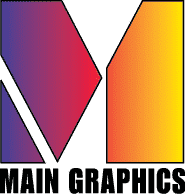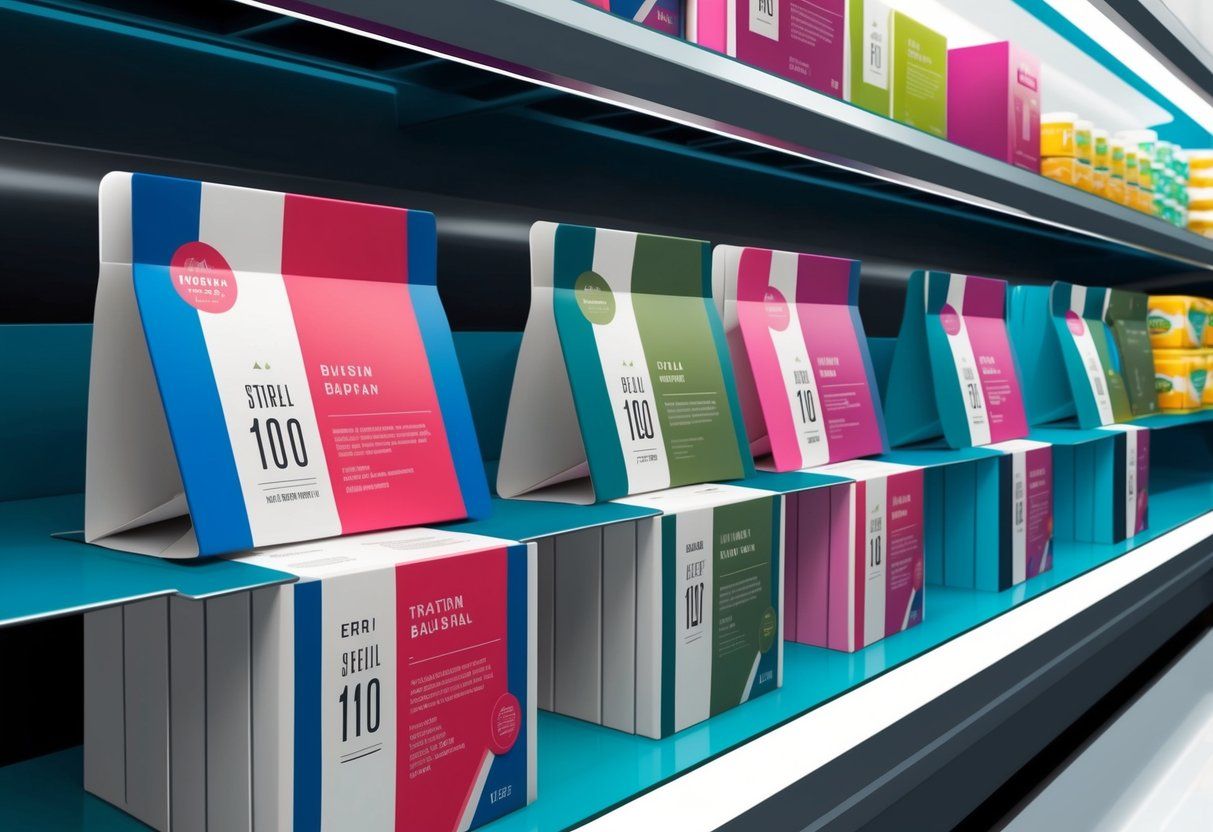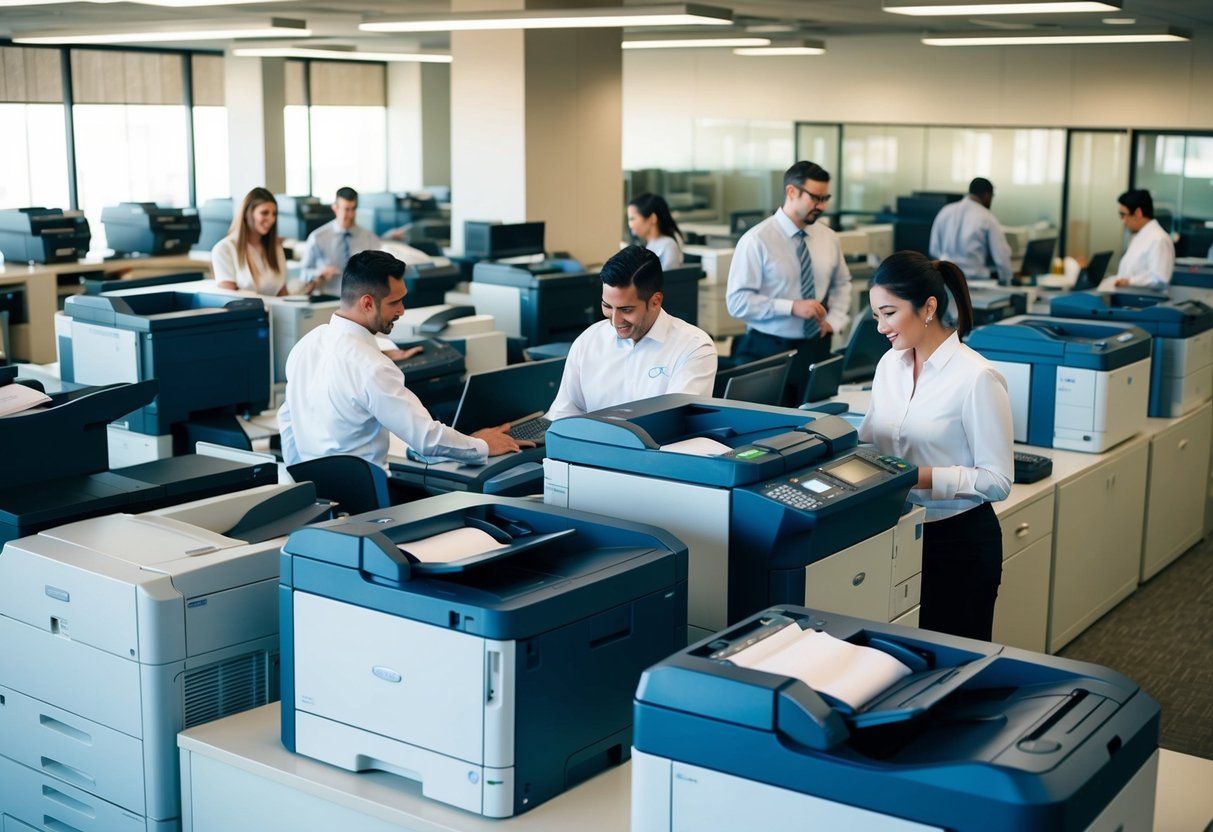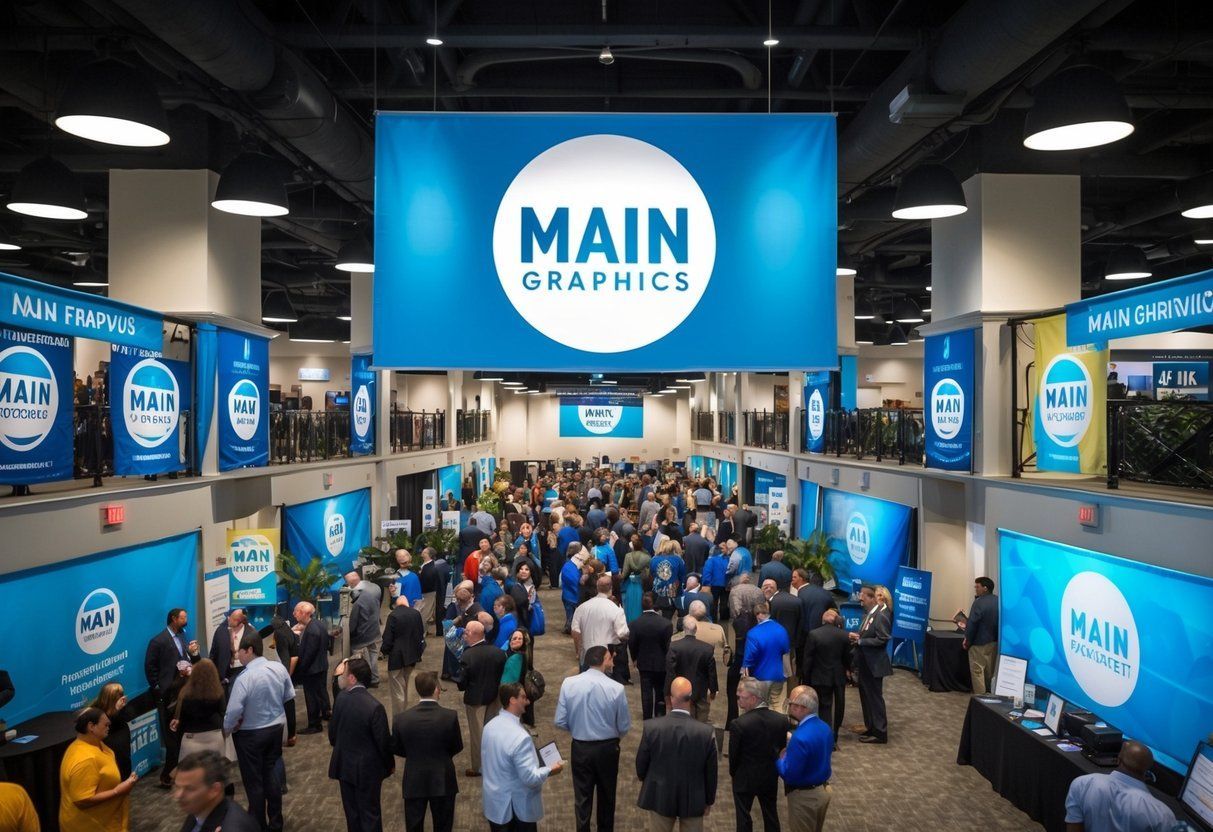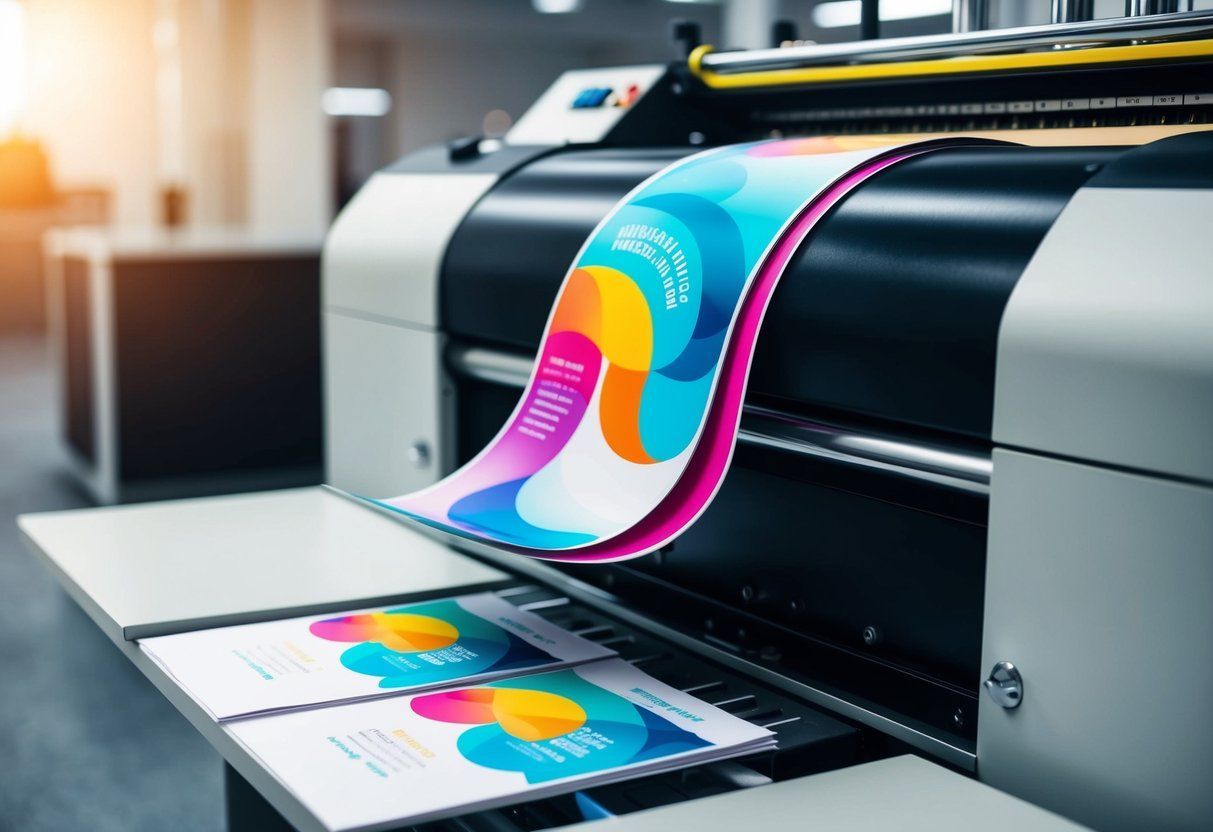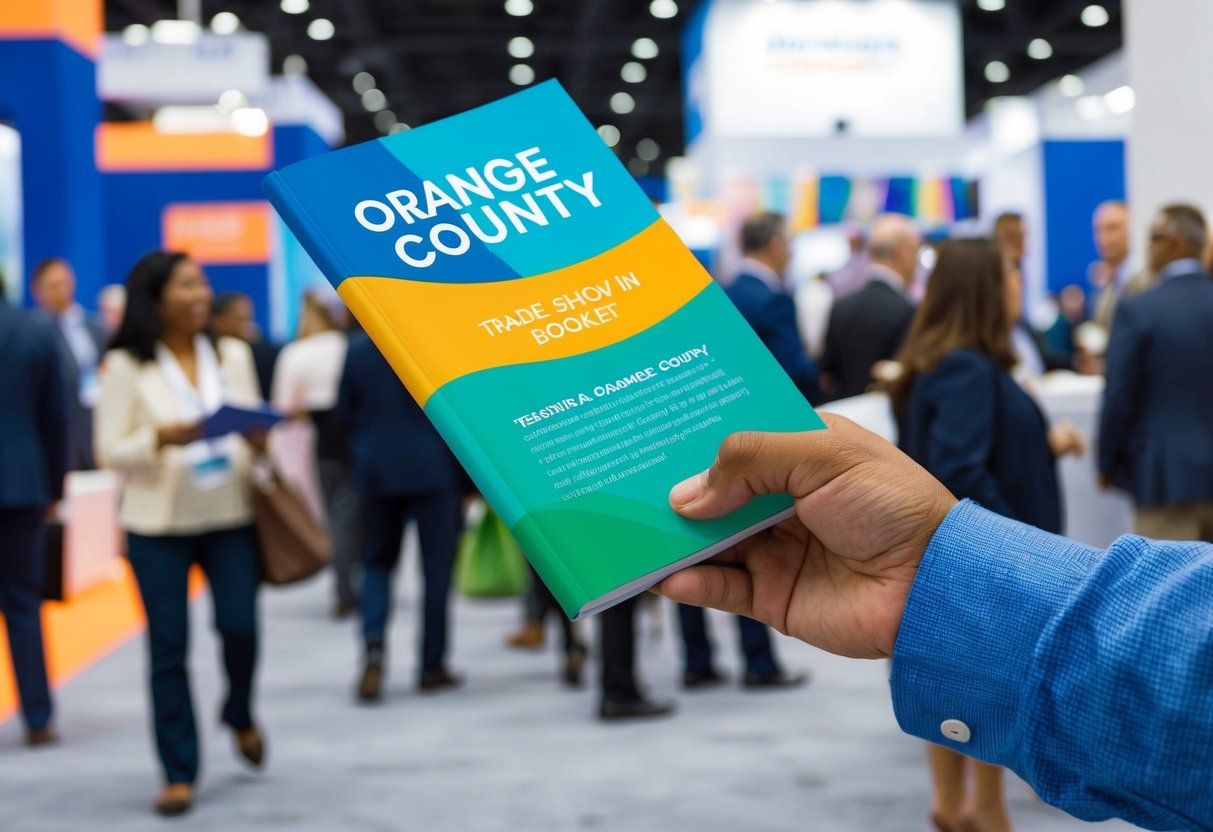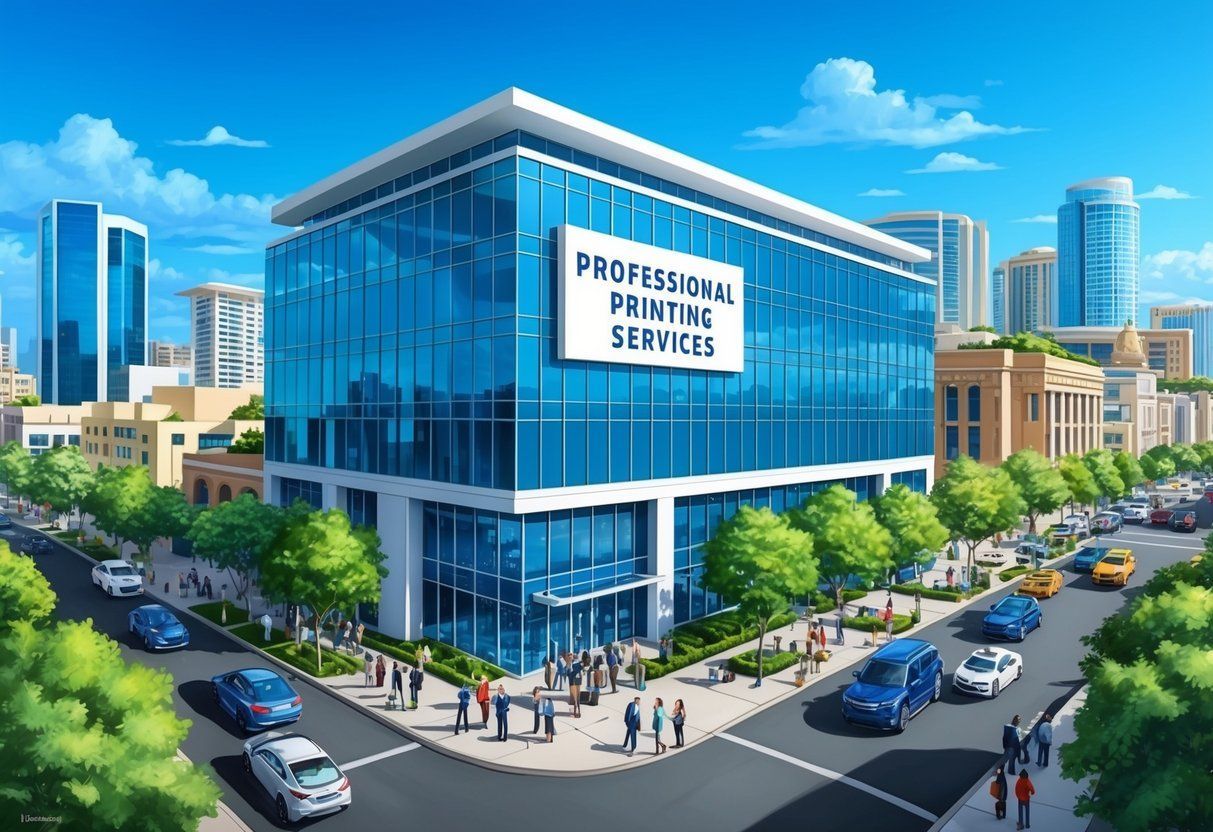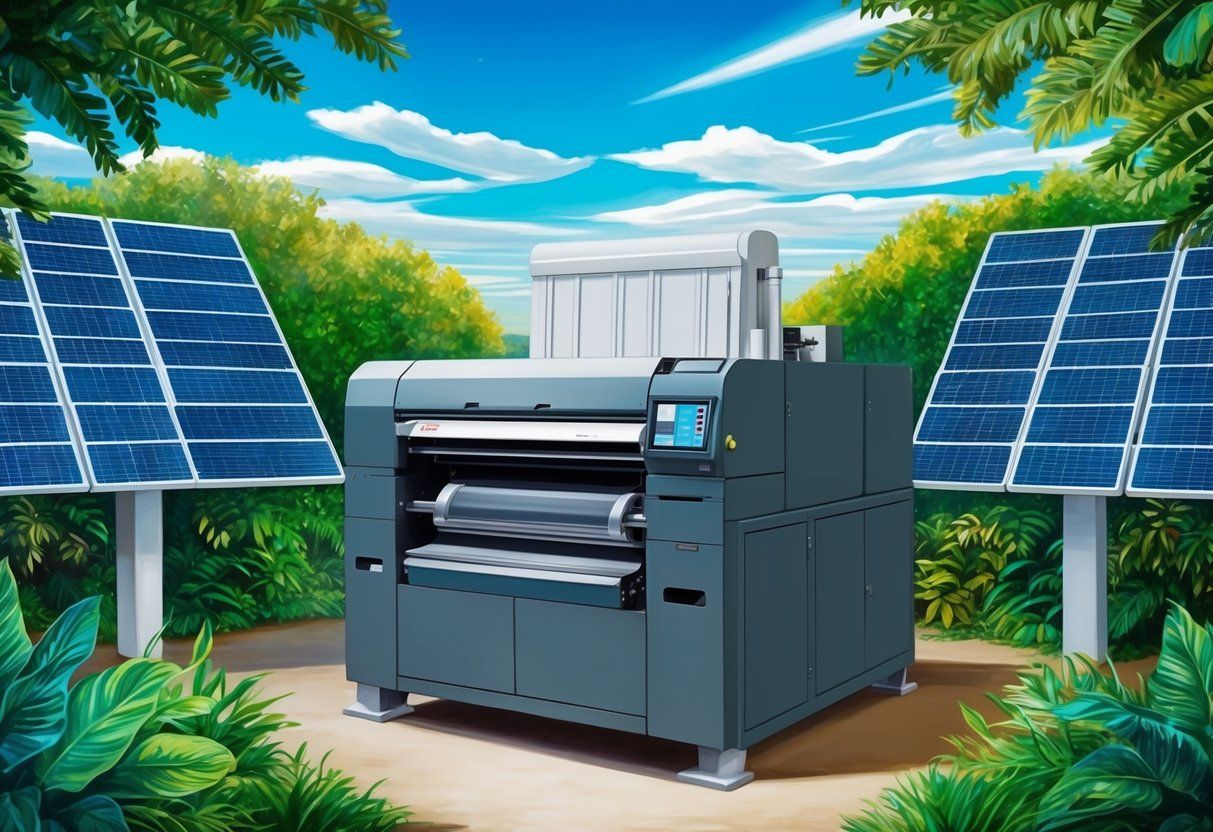The Benefits of Booklet Printing for Educational Workshops in Irvine: Enhancing Learning and Engagement
Booklet printing can be a game-changer for educational workshops in Irvine.
These printed materials can enhance learning by providing attendees with valuable information in an organized format.
Booklets serve as a handy reference tool that participants can use during and after workshops, making them an essential part of the educational experience.
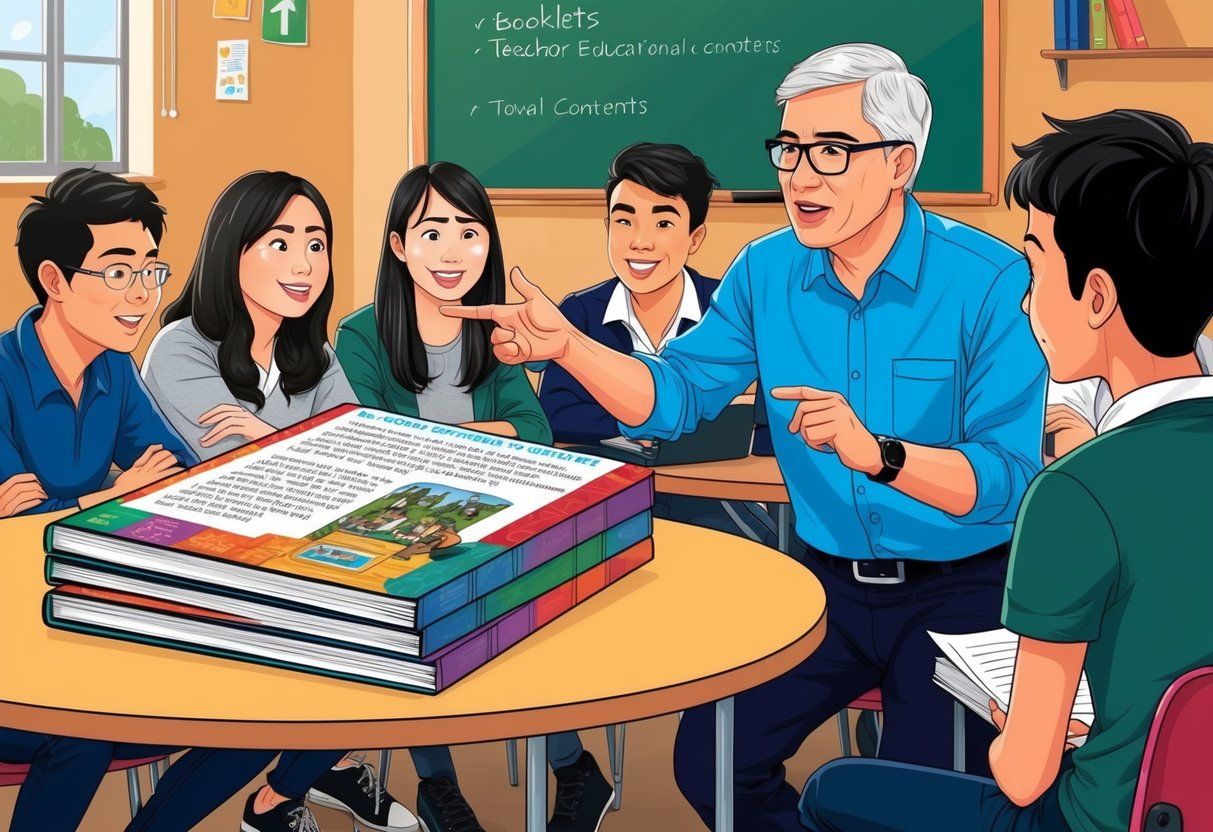
For educators and organizers, booklets offer a chance to present content clearly and concisely.
The structured layout allows facilitators to engage participants more effectively.
In Irvine, with its vibrant educational community, booklet printing can support a wide range of workshops, from science fairs to professional development events.
Easy to distribute and cost-effective, booklets can significantly improve workshop outcomes.
By providing well-designed booklets, educational organizations in Irvine can ensure that the learning experience continues beyond a single event, leaving a lasting impression on attendees.
Key Takeaways
- Booklets enhance learning during and after workshops.
- They provide a clear and organized layout for educational content.
- Easy distribution makes them perfect for educational events.
Advantages of Booklet Printing
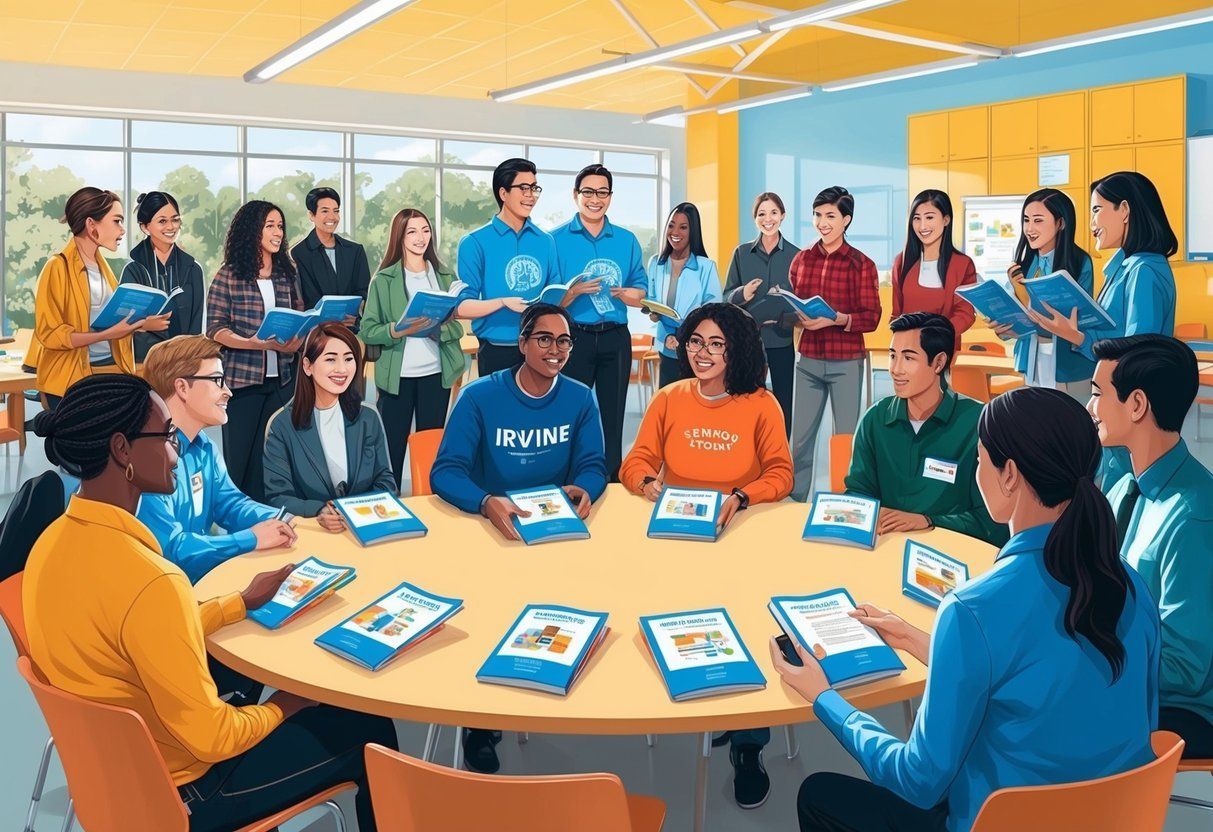
Booklet printing offers numerous benefits for educational workshops in Irvine.
It provides a cost-effective way to enhance attendee engagement. Additionally, the portability of booklets makes them practical for use both during and after events.
Cost-Effectiveness
Booklet printing is a budget-friendly solution for educational workshops.
Printing booklets in bulk can significantly lower the cost per unit. Many booklet printing services offer discounts for large orders, making it easier for organizers to manage expenses.
Event programs and educational materials in booklet form often cost less than other printed formats such as folders or binders. This pricing advantage is particularly beneficial for workshops with tight budgets or for those looking to maximize their resources.
Using booklets also helps save money by reducing the need for additional materials.
Instead of using loose sheets, printing everything in a single booklet minimizes costs related to materials and distribution. This efficiency not only saves money but also simplifies logistics.
Enhanced Engagement
Booklets improve attendee engagement during educational workshops.
They offer structured information, making it easier for participants to follow along with presentations. Well-designed booklets that include graphics, charts, and clear text enhance readability.
Attendees can engage with the content more effectively when the material is organized and visually appealing.
By including interactive elements like quizzes or note sections, booklets encourage active participation.
Booklet printing services often provide options for customization, allowing content to align closely with the workshop’s goals.
Tailored booklets ensure that participants have all necessary information at their fingertips and can focus on learning without distractions.
Portability
The portability of booklets makes them convenient for workshop attendees.
Compact and lightweight, booklets are easy to carry, fitting easily into backpacks or briefcases. This convenience encourages participants to keep and refer back to these materials after the event.
Having a portable source of information means that attendees are more likely to review the content when needed. Booklets can serve as a lasting reminder of the workshop topics, supporting continued learning.
Furthermore, the portability doesn’t compromise the amount of information included, as booklets can contain multiple pages. This versatility makes booklet printing an ideal choice for delivering comprehensive educational content succinctly and conveniently.
Designing Effective Booklets for Education
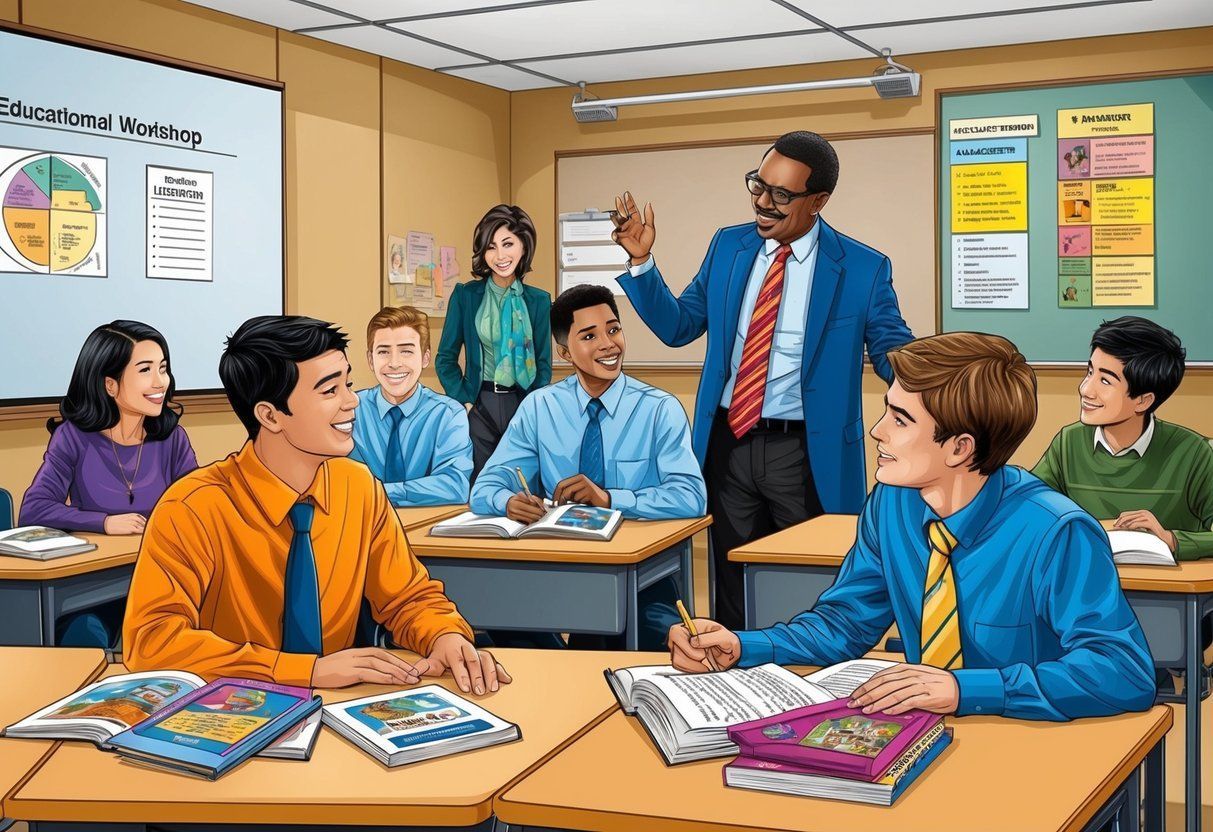
Creating booklets for educational workshops involves careful planning.
It’s important to clearly define their purpose, arrange the content in a logical structure, and incorporate visual elements to engage readers effectively.
Determining the Purpose
The first step in booklet creation is identifying its purpose.
In educational settings, this could mean offering in-depth knowledge on specific subjects, guiding workshop activities, or providing review material. Knowing the purpose helps guide every decision, from design choices to content inclusion.
Booklets aimed at Irvine workshops should address local needs and contexts.
Customization ensures relevance and enhances learning. Clear objectives help in selecting what information to include, making the content more targeted and efficient in delivering its educational goals.
Content Structure
After defining the purpose, focusing on content structure is key.
Content should be organized logically. Well-structured booklets follow a sequence that helps the reader understand concepts clearly.
Using sections, headings, and bullet points enhances readability. An organized layout helps participants follow along during workshops.
The structure depends on the complexity of the topic.
Simple booklets may require few sections, while complex ones need detailed breakdowns. For workshops in Irvine, understanding the audience’s prior knowledge can refine the structure, ensuring the booklet meets their learning needs.
Visual Elements
Visual elements play a critical role in educational booklets. They make information engaging and easier to grasp.
Graphics, charts, and images can emphasize key points and break down complex ideas. For booklet design, collaborating with graphic designers might enhance visual appeal and effectiveness.
Designs should be consistent throughout the booklet.
The use of colors and fonts should align with educational standards and branding, if applicable. In Irvine, leveraging local printing services ensures high-quality outcomes, with professionals capable of offering tailored, visually appealing products.
Custom Solutions for Irvine Workshops
Workshops in Irvine can greatly benefit from custom booklet printing. Using local services to create personalized materials helps enhance the educational experience for attendees.
Local Printing Services Advantages
Choosing local printing services in Irvine provides several benefits. These services often offer faster turnaround times than distant companies. When a workshop needs materials quickly, local providers can deliver. This reduces shipping times and helps avoid delays.
Local services also allow for in-person consultations. Workshop organizers can meet directly with staff to discuss specific needs. This face-to-face interaction ensures that all details of the educational materials align with workshop objectives. Local knowledge means they can tailor products to match Irvine’s unique aspects and culture.
A significant advantage of using local services is the support for the community.
By purchasing from nearby businesses, workshop organizers contribute to the local economy. This support fosters a strong sense of community among businesses and residents in Irvine.
Bespoke Workshop Materials
Creating bespoke workshop materials such as booklets and brochures offers many benefits.
Custom booklets can be tailored specifically for each workshop’s agenda. This ensures that all the content aligns with the workshop’s goals and audience needs.
Personalized designs in booklets and brochures can enhance brand recognition. Using colors, fonts, and logos unique to the workshop or organization makes the material memorable. This customization can also include inserting relevant images or data tailored to the workshop’s topics.
Furthermore, bespoke materials allow for flexibility in content presentation.
Workshop organizers can choose specific layouts that better engage participants. Whether through interactive diagrams or visually appealing charts, the customized content can improve the education and engagement of workshop attendees in Irvine.
Printing Process for Educational Booklets
Creating educational booklets involves careful selection of materials and methods to ensure durability and effectiveness. Choosing the right paper stock and binding types are crucial steps in this process.
Choosing the Right Paperstock
Selecting the right paper is vital for booklet printing. It affects both the appearance and durability of the booklet.
Glossy paper is often used for booklets because it adds a professional finish, making images pop with vibrant colors. Matte paper offers a non-reflective surface, which is suitable for text-heavy booklets as it is easier to read and does not glare under lighting.
In Irvine, custom printing solutions offer a wide range of paperstocks suitable for educational workshops. They provide options based on thickness and texture, catering to different needs.
Heavier paper (around 100-130 GSM) is recommended to ensure pages hold up through multiple uses. Choosing recycled paper can also be an eco-friendly option for education-focused projects.
Binding Types for Durability
Binding types play a key role in the booklet’s lifespan and functionality.
Saddle-stitch binding is a common choice for smaller booklets, as it allows the booklet to lay flat, making it easy to read during workshops. This method involves stapling the pages along the spine, which is both cost-effective and efficient for short runs.
Perfect binding is another option for larger booklets, giving a more polished, book-like appearance. It involves gluing the pages to a spine, providing better durability for thicker booklets. In Irvine, many printers offer these options, helping educators create lasting, high-quality materials. Spiral binding might also be considered for educational contexts where ease of page-turning is important.
Utilizing Booklets in Educational Workshops

Booklets play a vital role in educational workshops. They help organize information, making it easy for attendees to follow along.
The readability of booklets ensures everyone can keep track without getting lost in complex details.
Workshops often have event programs. Booklets can neatly compile these programs, allowing participants to know the schedule and topics covered. This structure can enhance both learning and engagement.
Booklets can serve as a great takeaway, providing attendees with a reference to review after the workshop. They help reinforce learning by allowing individuals to revisit the information.
Educators can benefit from using booklets by including illustrations or charts. This makes the material more engaging and easier to understand. Well-organized text and visuals ensure information is both accessible and memorable.
Custom-design options let booklets reflect the workshop’s theme or brand. This personalized touch can leave a lasting impression on participants. Clear fonts and thoughtful layouts are crucial for creating effective booklets.
Durable materials are important to ensure booklets last. This way, participants can use them as a lasting resource. Choosing the right paper and cover helps maintain the booklet’s quality over time.
Incorporating booklets into workshops can enhance the learning experience. They provide a structured approach, improve engagement, and offer a tangible resource for participants. Booklets are not just informational but also practical tools in educational settings.
Distribution Strategies

Effectively distributing booklets for educational workshops in Irvine involves both physical methods and online access. The aim is to reach as many participants as possible, ensuring everyone has the necessary materials.
Physical Distribution
Physical distribution strategies for booklets include handing them out during events, mailing them, or making them available for pickup at designated locations.
Event handouts are straightforward and ensure that attendees receive materials directly. This approach guarantees booklet delivery but requires planning to manage quantities and distribution timing.
Mailing booklets can extend reach to those unable to attend in person. It involves additional costs, and organizers need to collect accurate addresses. Using pickup locations, like local libraries or community centers, offers a flexible alternative. It provides attendees the option to collect booklets at their convenience, which can improve participant satisfaction.
Digital Access
Providing digital access to booklets can enhance distribution. This involves offering downloadable PDF versions through email newsletters or on workshop websites.
Email distribution allows participants to receive materials directly in their inboxes, assuring quick and easy access. Ensuring the file size is manageable is important for smooth transmission.
Publishing booklets on dedicated webpages ensures wider access. Online availability means participants can view or print booklets as needed. To ensure engagement, interactive digital formats, such as flipbooks or enhanced PDFs, may offer additional value with clickable links or embedded media. These formats can enrich the learning experience while supporting diverse learner preferences.
Measuring the Impact of Printed Material
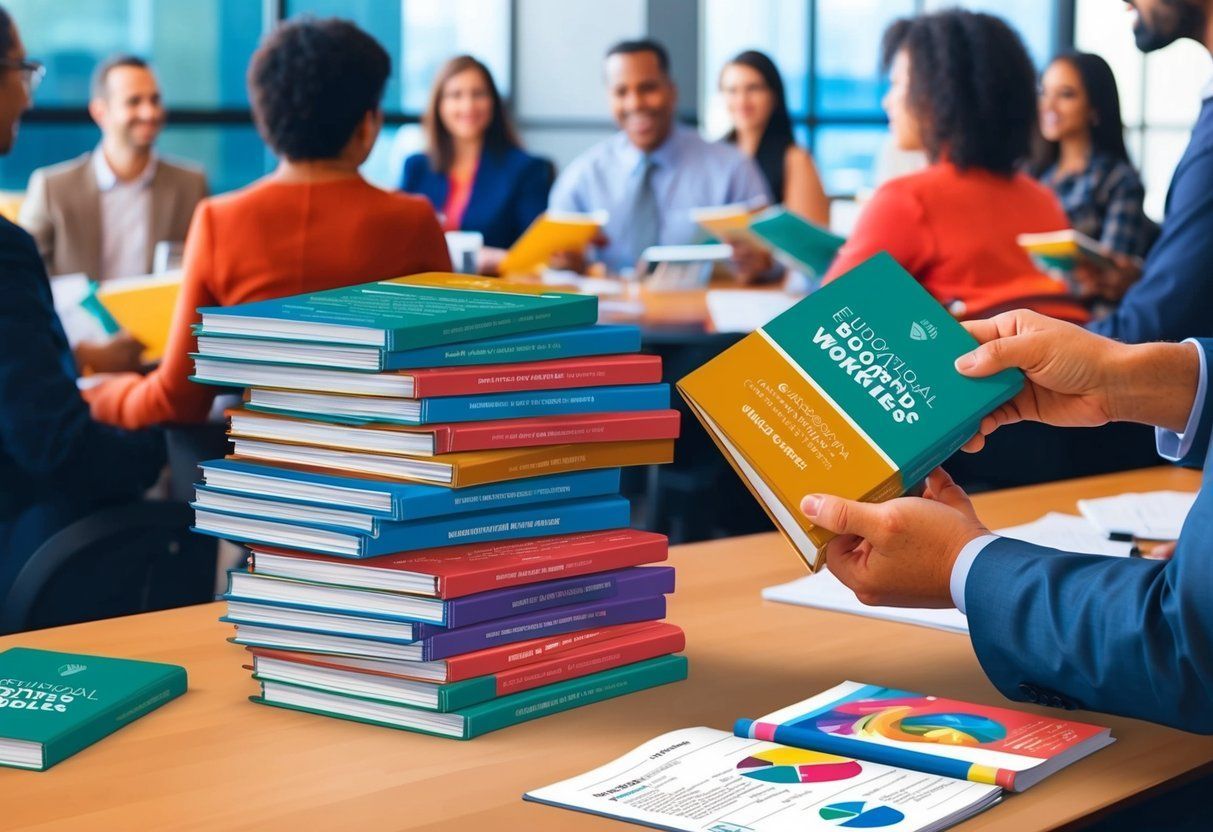
Printed materials can make a big difference in educational workshops. They provide attendees with physical resources to refer back to.
This helps reinforce learning.
Engagement Metrics:
- Surveys and feedback forms
- Participation rates in discussions
- Attendee return rates
Tracking these metrics can show how much printed materials help.
Printing booklets means participants have something in their hands. This tactile experience aids memory retention.
Resources like worksheets or guides enhance understanding and allow learners to apply new concepts.
Knowledge Retention:
Printed booklets serve as reference material. Attendees can review details at home, boosting long-term retention.
Educators can measure the effectiveness through follow-up assessments or quizzes.
Increased discussion often occurs when participants have printed guides. They can easily refer to specific sections, encouraging interaction.
This active participation is key to effective workshops.
Cost vs. Benefit Analysis:
Use cost analysis to compare the expenses of printing with the benefits gained. Higher engagement and better learning outcomes can outweigh costs.
In educational settings, printed materials support diverse learning styles. Visual learners benefit from charts and graphs, while textual content aids reading learners.
This inclusivity enhances the overall effectiveness of workshops.
Frequently Asked Questions
Booklet printing offers unique benefits for educational workshops. It enhances learning, supports information retention, and provides a tactile experience that digital materials may lack.
How can booklet printing enhance the learning experience in educational workshops?
Booklets offer participants a tangible resource to follow along during workshops. They can jot down notes and have a physical reference to revisit.
This hands-on approach helps in focusing and retaining information discussed.
What are the key advantages of using printed booklets for educational purposes?
Printed booklets are portable and don’t rely on electronic devices, ensuring accessibility anytime. They allow for easy distribution of consistent information to all participants.
This consistency helps maintain a structured flow throughout the workshop.
What design strategies should be considered when creating booklets for workshops?
Clear organization and well-structured layouts are crucial. Use bullet points and headings to make information skimmable.
Incorporating visuals, like charts and images, can make the content more engaging and easier to remember.
How does booklet printing contribute to information retention for workshop participants?
Physically interacting with booklets, like underlining or writing notes, can improve memory retention. Studies suggest this method engages the brain differently than digital materials, allowing for better recall of information later.
In what ways do printed booklets provide value over digital materials for education?
Printed booklets eliminate digital distractions, enabling participants to concentrate more effectively. They also provide reliability as there’s no risk of technical failures, ensuring seamless use throughout the workshop.
What considerations are important when producing booklets for educational workshops?
When producing booklets, consider the clarity of the text and durability of the materials.
High-quality, easy-to-read fonts and sturdy paper ensure longevity and a positive user experience.
Budget and quantity should also be taken into account to align with the workshop’s needs.…
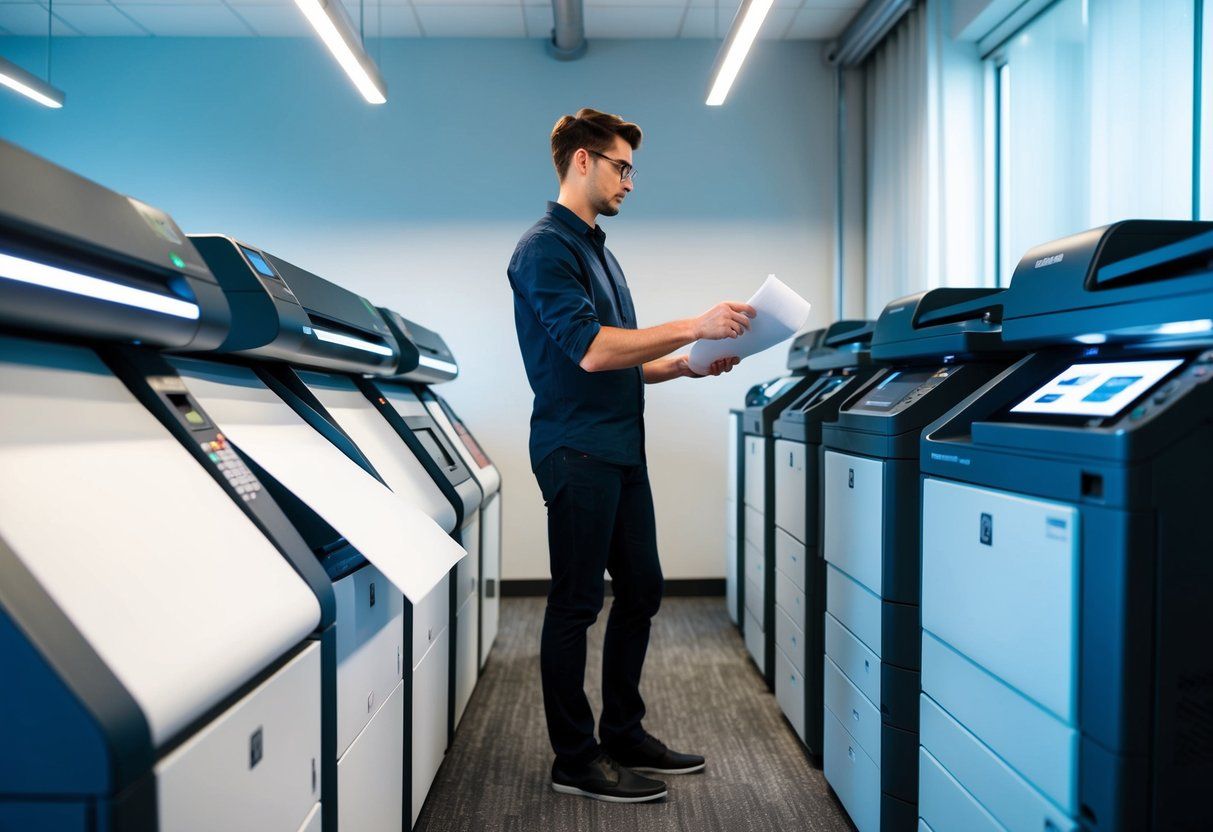
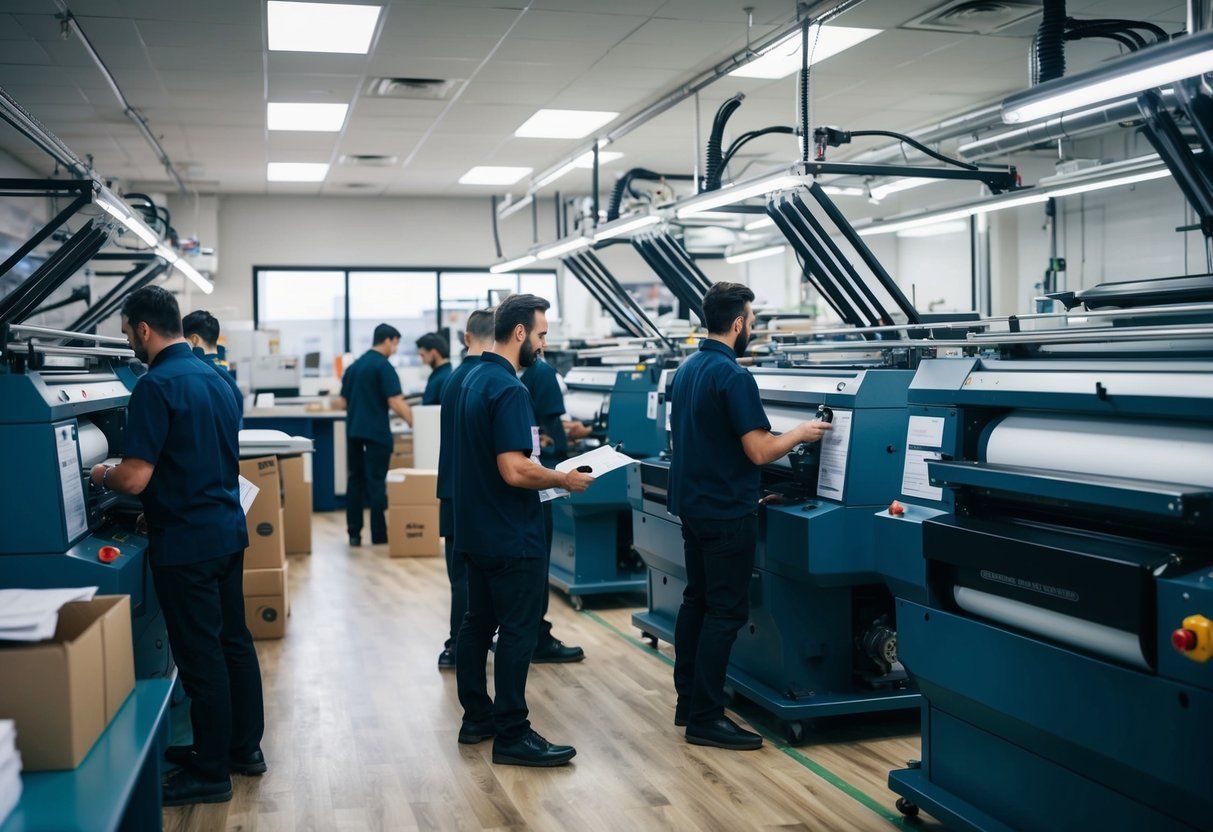
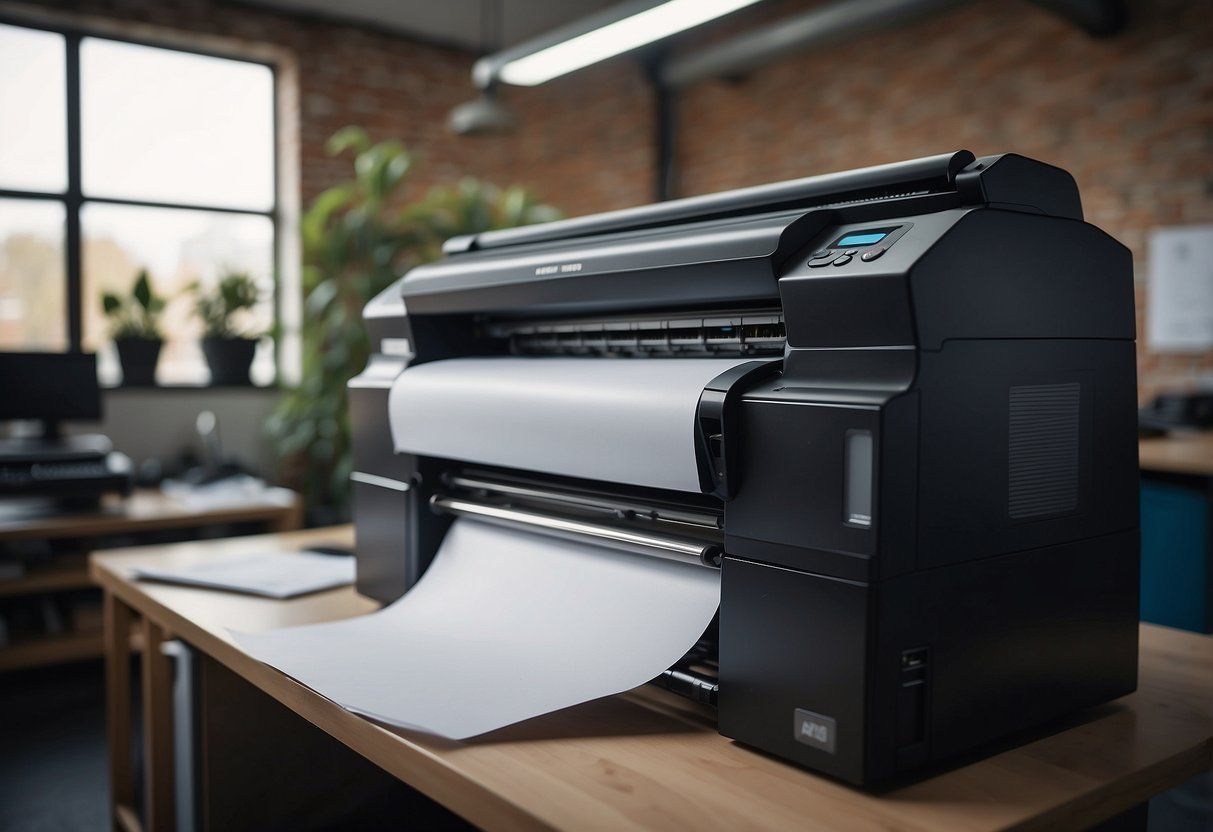
Ready to get started?
Call Main Graphics at 949-788-6100 For Your Free Consultation With A Printing Expert!
Get A Free Quote
All Rights Reserved | Main Graphics
